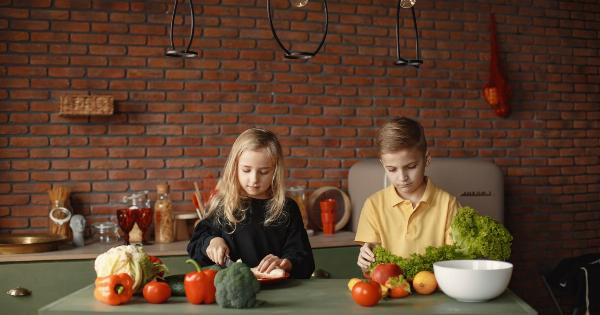Plant-based diets are gaining popularity, as more people embrace the health benefits of eating whole foods and reducing their consumption of animal products.
But are these diets appropriate for kids? As parents, we want to ensure that our children are getting the nutrients they need for healthy growth and development. In this article, we will explore the pros and cons of plant-based diets for kids and provide some tips for making sure your child gets all the nutrients they need.
The Benefits of Plant-Based Diets for Kids
There are many benefits to plant-based diets for kids, including:.
- Improved cardiovascular health. Plant-based diets have been shown to reduce the risk of heart disease, the leading cause of death in the United States.
- Reduced risk of cancer. Eating a diet rich in fruits, vegetables, and whole grains has been linked to a lower risk of certain types of cancer.
- Better digestion. Plant-based diets are high in fiber, which can help promote healthy digestion and prevent constipation.
- Less exposure to antibiotics and hormones. Many animal products contain antibiotics and hormones that can disrupt the delicate balance of the body’s hormones and microbiome.
The Downsides of Plant-Based Diets for Kids
While there are many benefits to plant-based diets, there are also some potential downsides, including:.
- Nutrient deficiencies. Plant-based diets can be low in certain nutrients that are essential for growth and development, such as vitamin B12, iron, calcium, and omega-3 fatty acids.
- Protein intake. Kids need adequate protein for healthy growth and development, and plant-based diets can sometimes be low in this nutrient.
- Picky eaters. Some kids may be picky eaters and refuse to eat certain plant-based foods, making it difficult to ensure they are getting all the nutrients they need.
- Cooking time. Plant-based diets often require more cooking time and preparation than diets that include animal products, which can be a challenge for busy parents.
Tips for Making Plant-Based Diets Work for Kids
If you are considering a plant-based diet for your kids, there are some things you can do to ensure they get all the nutrients they need:.
- Talk to a pediatrician. Before making any significant changes to your child’s diet, it’s essential to consult with a pediatrician or registered dietitian who can ensure that your child is getting all the nutrients they need.
- Focus on whole foods. Make sure your child is eating a variety of whole, plant-based foods, including fruits, vegetables, whole grains, nuts, and seeds.
- Supplement as needed. Depending on your child’s individual needs, they may require supplements to ensure they are getting all the nutrients they need. Talk to your pediatrician or a registered dietitian about the best supplements for your child.
- Include protein-rich options. Make sure your child is getting enough protein by including foods such as legumes, tofu, tempeh, and nuts in their diet.
- Create balanced meals. When planning meals, aim to include a variety of colors, textures, and flavors to keep your child interested and ensure they are getting all the nutrients they need.
- Be patient. It may take time for your child to adjust to a plant-based diet, so be patient and persistent in introducing new foods and flavors.
Conclusion
In summary, plant-based diets can be a healthy and nutritious option for kids, but it’s essential to ensure that they are getting all the nutrients they need for healthy growth and development.
Consulting with a pediatrician or registered dietitian, focusing on whole, plant-based foods, supplementing as needed, including protein-rich options, creating balanced meals, and being patient can help ensure that your child thrives on a plant-based diet.




























